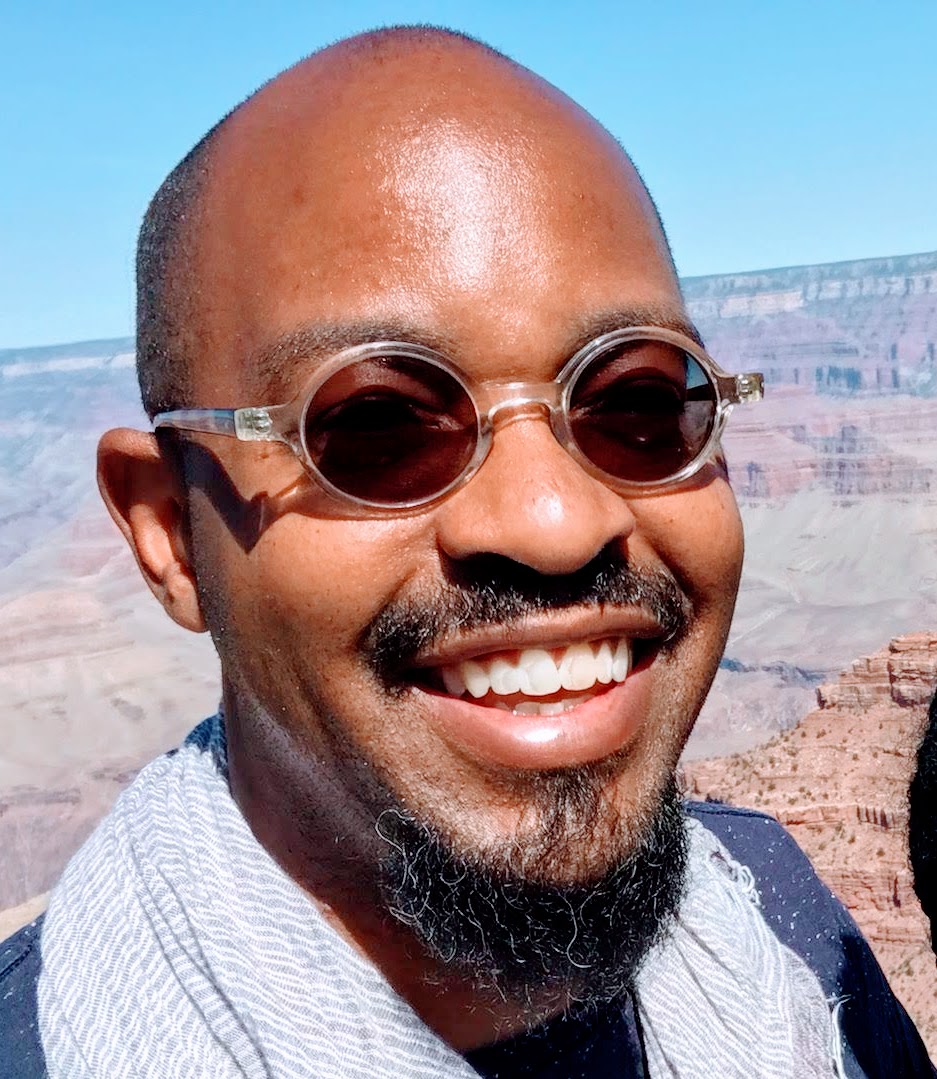Understanding the art of thought with associate professor of philosophy, James Haile III PHOTO CREDIT: James Haile III
James Haile III, associate professor of philosophy at the University of Rhode Island, finds philosophical questions in the most unexpected places.
He is interested in both philosophy of place and the intersection of African American literature and existentialism.
According to Haile, his approach to philosophy is non-traditional in an academic sense but is very traditional in an artistic sense. He thinks about philosophy like experimental art, in the sense that you never know what may strike as interesting. He has found topics to explore from many places including advertisements, art museums, social media and bumper stickers.
“It’s more spontaneous,” Haile said. “If you look at it from the outside, it might look all over the place because there is no sort of trajectory or direction that I’m going in. It’s whatever interests me.”
William Krieger, chair and associate professor of the philosophy department, has been working with Haile since he was hired at the University.
“I really do see both him as a person and his work, probably more importantly, as being at the center of the department has really kind of what we see as our future,” Krieger said.
Haile creates an interesting dynamic in the classroom by challenging everything. He said the students read everything in detail and are often surprised with some of the bizarre things people in the past have said.
Currently, in his work dealing with the intersection of African American Literature and Existentialism, Haile is working to break down what is currently defined as Black literature by taking a further look into technique.
“We often don’t know what African American literature is because the African American part determines the literature part,” Haile said. “We just define it as whatever a Black person writes.”
He was able to use art as a comparison to depict how pieces can be distinguished by isolating certain parts. Instead of looking at the piece as a whole and defining what it means, the class would pick out one stylistic technique to analyze. In one of his classes, he and his students looked at a painting from Rembrandt and could pick out his pieces solely by the way light was incorporated.
“The Blackness becomes more of a technique than a racial category,” said Haile in relation to literature.
He said this helps distinguish the literature and the time period which is where the crossover occurs by seeing blackness as a technique and questioning the content and context by which people understand. According to Haile, how people create art and understand the meaning of art matters. He said that this is the most fascinating part of art.
In addition to exploring his interest in philosophy, Haile wrote a book titled, “The Buck, the Black, and the Existential Hero” in April 2020. He said that writing his book was as spontaneous as all of the other things he’s done.
The book represents a mix of concepts stemming from societal expectations in how one should appear or present themselves.
“The book became a sort of question of ‘what is this thing we’re calling the existential self and this authentic reality we are supposed to live in?’,” Haile said.
The book was inspired by a bizarre interaction Haile experienced at a job interview.
Haile said he went into the interview in a three-piece wool suit to make an impression. The interviewer asked him to come back not because of what he said, but the way he presented himself.
“Some people want you to come back because they think you are uptight and unapproachable,” Haile said. “Because you were too buttoned-up, and they wanted more of a fiery engagement personality.”
In the job interview, and in most settings, Haile said that there are differences in expectations for people of color versus white people.
“Sometimes people expect the minority to come in and be more than a normal person,” Haile said. “To be more entertaining, and less professional in the sense that they expect and so I came back and gave a sort of a parody paper on theatrical performance in Black identity.”
He was able to write the book from the experience without directly focusing on the specific instance, but the concepts taken from it as a whole.
Krieger is fond of Haile both as a professor and a colleague.
“I’ve seen him teach. I’ve seen the passion of his work and I’ve gotten to read his research. I can just say that in all of those worlds he is passionate, interested, engaged, and excited,” Krieger said.

